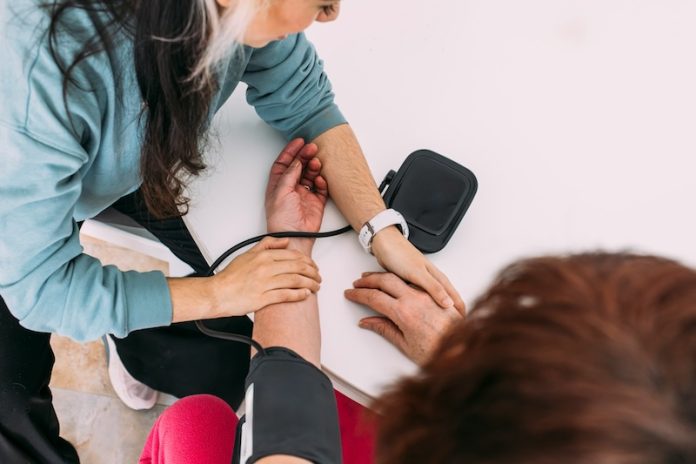
High blood pressure, also known as hypertension, is a common but serious health problem.
It affects millions of people in the United States and increases the risk of heart attacks, strokes, and kidney problems.
Many people with high blood pressure take medicine and try to eat healthier or exercise more, but for some, their blood pressure stays high no matter what they do.
This is known as persistent hypertension.
Doctors at Yale School of Medicine wanted to understand why this happens and how to better help these patients. Their study looked at different reasons why some people can’t get their blood pressure under control, even with treatment.
There are many reasons why someone might have persistent high blood pressure. For some, the medicines they take simply don’t work well because of other health conditions. Others may not know they have high blood pressure at all, so they don’t get treated. Some people might not be taking the right medicine or the right amount.
Others may stop taking their medicine because of side effects, or they forget to take it every day. Some patients can’t get regular medical care because of money problems, transportation issues, or missed appointments.
To help solve these problems, researchers at Yale created a system to sort patients into groups based on what’s making it hard for them to manage their blood pressure. This system, called a “taxonomy,” helps doctors understand each patient’s unique situation and offer the right support.
For example, if someone can’t afford their medicine, a social worker might help them find ways to get it at a lower cost. If someone has a health condition that makes their blood pressure hard to control, their doctor might change their treatment or order more tests.
If someone keeps forgetting to take their pills, they might get reminders or extra help to understand why the medicine is important.
The researchers are also using technology to speed up this process. They are developing artificial intelligence (AI) tools that can read patients’ medical records and pick up clues about who might need extra help.
These tools use something called “natural language processing,” which means they can understand the words written in a doctor’s notes. This saves time and helps doctors quickly figure out which patients are struggling and why.
The team at Yale plans to test this system with 40,000 people who work at the Yale New Haven Health System, along with their families. If it works well, the system could be used in other hospitals and clinics around the country. It might even help with other long-term health problems like diabetes.
For people living with high blood pressure, there are still many simple steps they can take. Losing weight, eating more fruits and vegetables, cutting back on salt and sugary drinks, and getting regular exercise can all make a big difference. Limiting alcohol, quitting smoking, and taking medicine as prescribed are also important.
This new approach from Yale shows that managing high blood pressure is not just about giving the right medicine. It’s also about understanding each person’s challenges and giving them the help they need. With the help of new technology, doctors might soon be able to offer more personalized care to each patient. This could lead to better results and healthier lives for many people.
The study was led by Dr. Yuan Lu and was published in the journal Circulation: Cardiovascular Quality and Outcomes. The researchers hope their system will help more patients get their blood pressure under control and prevent serious health problems in the future.
If you care about high blood pressure, please read studies about vitamins impacts on high blood pressure people need to know, and how to manage high blood pressure and diabetes with healthy foods.
For more health information, please see recent studies about the best and worst foods for high blood pressure, and modified traditional Chinese cuisine can lower blood pressure.
Copyright © 2025 Knowridge Science Report. All rights reserved.



